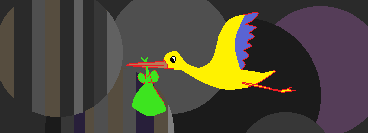Spadina Literary Review — edition 39 page 16
pensées

Climate Capitalism
by Tom Rand
[Adapted from the Preface to Tom Rand’s The Case for Climate Capitalism: Economic Solutions for a Planet in Crisis, new from ECW Press. In the face of climate catastrophe, Mr Rand calls for an urgent abandonment of divisions between business interests and environmentalists to reorganize the economy in a manner that keeps capitalism vigorous but forces its profits to align with the planet’s health.]
Partway through writing this book, I discovered I was going to become a father. His mother and I were both surprised as it proved wrong a cadre of medical experts. The usual panic ensued and faded. It was obvious my life would change in lots of ways, many unexpected, mostly good, some inconvenient. But I knew I would handle it; after all, the same thing’s happened to billions of others, for thousands of years! It’s part of being human. But one deep-seated fear simply won’t go away. It may not be something I can ever handle with grace. It’s partly why this kid thing hadn’t already happened.
Climate change terrifies me. Jokes about apocalyptic landscapes are as much confession as humor to climate nerds such as myself. It’s not just me — anyone who’s been in the carbon kitchen comes out in an uncomfortable emotional state. Each person deals with those demons in his or her own way.
What’s that got to do with the kid? The prospect of hitting catastrophic tipping points in the next few decades brings more than sleepless nights — it makes having a kid a complex moral question. First, there’s the issue of bringing yet another person to our profligate emissions party. It’s uncomfortable (to put it mildly) to say climate change is as much a population issue as an environmental one. Having kids is no longer morally benign — or even good — as it was in previous generations. But for me, it’s not just the population thing. After all, someone’s got to have them, and heck, I’m only having one!
My deep unease is because I know — absent a near-miraculous change in political will — my kid is likely to grow up in an age driven by scarcity and conflict. I can’t undo what I’ve learned about climate risk. There are good reasons most sane people tune out increasingly shrill warnings from the scientific and security communities. They are deeply unsettling, even anxiety-inducing.
One way I’ve been keeping my own climate demons at bay was to believe I was one step removed from that possible future. I’m connected by love to an extended network of friends and family, of course, but with no kids of my own, I could fool myself into seeing climate risk as a philosophical problem or interesting anthropological challenge rather than a direct emotional threat. I’d live to see some effects, but by the time things got catastrophic — say 2040 or 2050 — I’d be long gone with no real stakes in play. No more. My kid will be a young man then. Without some sharp turns in our economic system, he’ll almost certainly see some degree of breakdown in social order.
Days after discovering I was to be a dad, I attended the 2016 Planetary Security Conference in The Hague. Military brass and security experts, one after another, confirmed what I already knew: the degree of social upheaval coming our way is mind-numbing. That very year, every refugee hitting European shores came from water-stressed countries. The Syrian war was exacerbated by the longest and most severe drought in memory. The razor-wire fence around Bangladesh, backed by shoot-to-kill soldiers, is a dark premonition of what will happen when that crowded country begins to flood and the population looks to escape. When Russia temporarily shut down grain exports during a severe drought in 2012, the cost of food around the world skyrocketed. The resulting riots kicked off the Arab Spring.
The military community doesn’t see climate change as a simple set of individuated physical events, like droughts or storms, but as a “threat multiplier” that amplifies social tensions in ways we are just beginning to appreciate. Water stress in one place brings risk elsewhere: those Syrian refugees triggered a resurgence of the far right throughout Europe. And food markets are global; leaders cannot see their populations starve without resorting to what military might they have to get the food and water they need. Refugees by the tens or even hundreds of millions will not be contained in camps or by walls. Political tensions build in complex, interactive ways. We do not live in isolation. Our individual security is predicated on collective security. My kid can’t hide, even in a place like Canada.